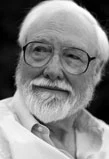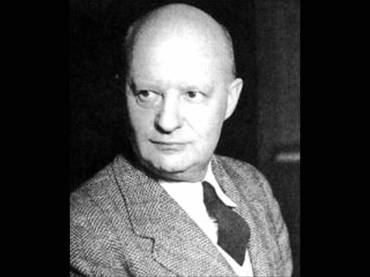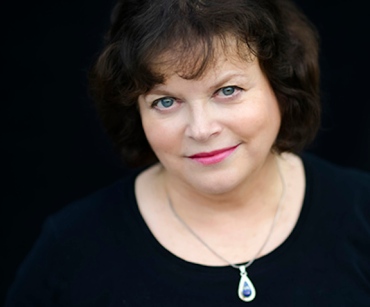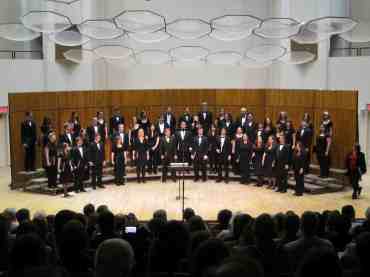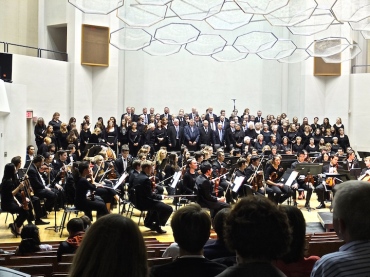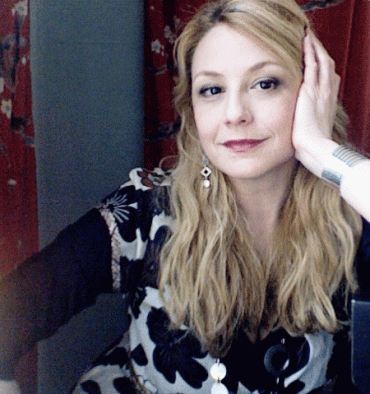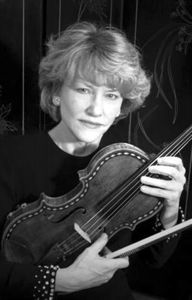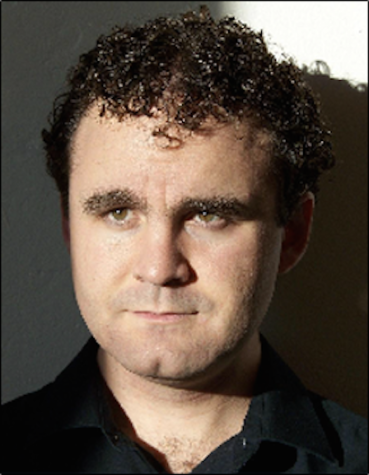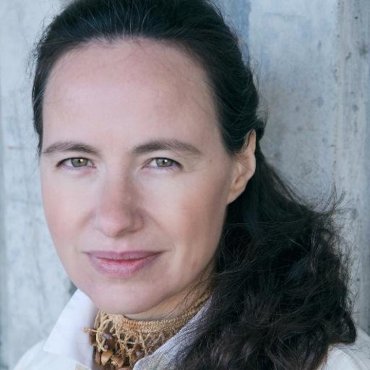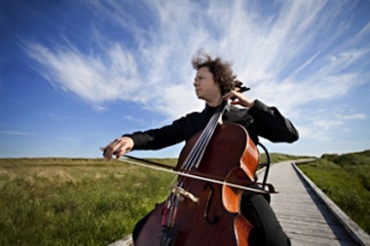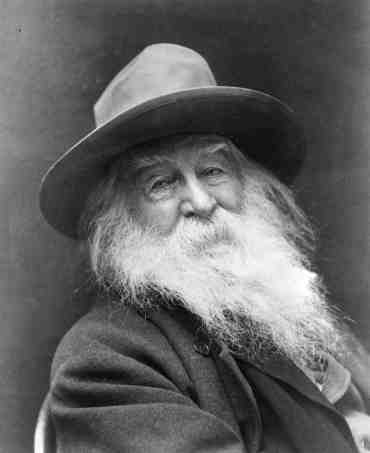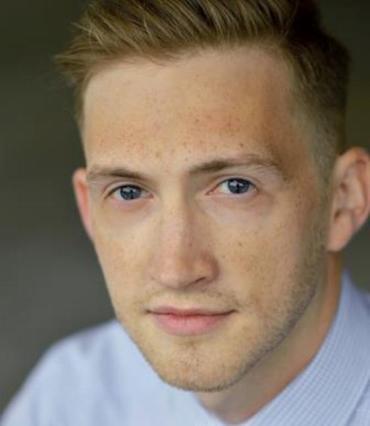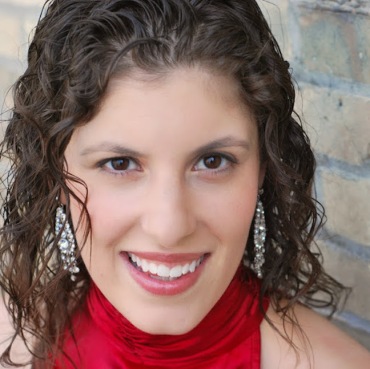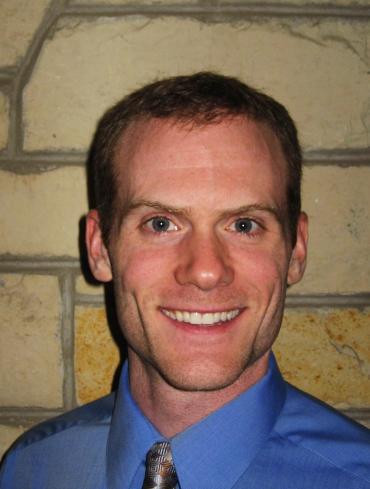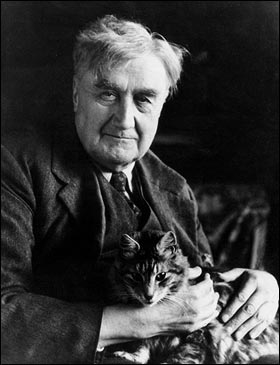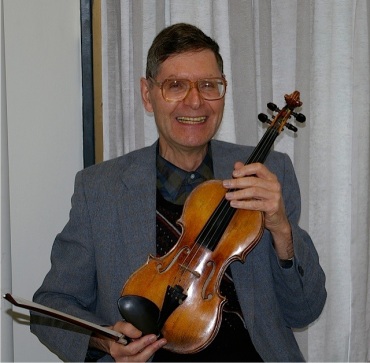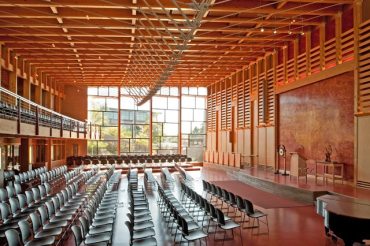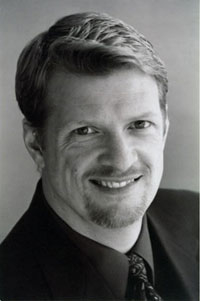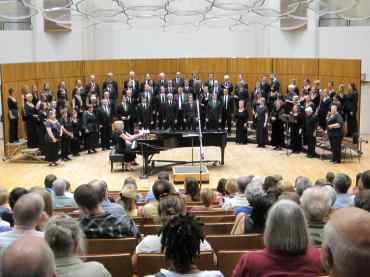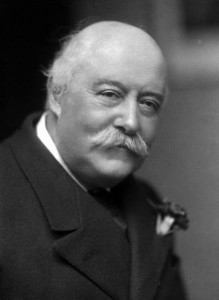The Well-Tempered Ear
Classical music: The UW Choral Union, UW Symphony Orchestra and guest soloists took the audience on a memorable musical voyage in Ralph Vaughan Williams “A Sea Symphony”
6 Comments
PLEASE HELP THE EAR. IF YOU LIKE A CERTAIN BLOG POST, SPREAD THE WORD. FORWARD A LINK TO IT OR, SHARE IT or TAG IT (not just “Like” it) ON FACEBOOK. Performers can use the extra exposure to draw potential audience members to an event. And you might even attract new readers and subscribers to the blog.
By Jacob Stockinger
It took a postponement of almost two months before the UW Choral Union (below) finally got to perform last Saturday night in the Mead Witter Foundation Concert Hall in the new Hamel Music Center.
But the wait was worth it.
The combined forces – conducted by the retiring choral director Beverly Taylor – proved convincing and accomplished in the challenging score of “A Sea Symphony” by the early 20th-century British composer Ralph Vaughan Williams.
The performers did justice to the score’s vivid sound painting. You could hear the sea wind whistling through the rigging; you could feel the ship plowing through the swells and waves.
The American poet Walt Whitman (below) – whose epic-like poetry provided the text for this ambitious nautical and musical journey – would have been proud of the performance.
After all, like Whitman’s poetry, Vaughn Williams’ music — his first symphony — can be forceful and spacious at many moments, tender and reflective or even intimate at other times. The music matches the text, and the performers matched both.
The forces were precise under Taylor’s baton, with sharp attacks and no ragged stopping. True, there were a few moments when the balance seemed a bit off, when the UW Symphony Orchestra overpowered the large campus and community chorus, especially in the very brassy and thickly scored first movement. You just wanted to hear the words better and felt frustrated not to.
But for the most part, though, the student orchestra proved impressive. They were tight and crisp, accurate and transparent, allowing listeners to hear the inner part playing and even certain modernist harmonies of the generally conservative Vaughan Williams (below).
Moreover, the symphony, the chorus and the soloists blended especially well and movingly in the symphony’s quieter moments.
Those moments included the second movement, “On the Beach at Night, Alone”; and the quiet, understated ending where the idea of voyage and exploration becomes personal and metaphorical or spiritual as well as literal: “Reckless, O soul, exploring, I with thee, and thou with me … O my brave soul! O farther, farther sail!”
(You can hear a sample in the hymn-like opening of the fourth movement in the YouTube video at the bottom.)
In addition, the outstanding acoustics of the new hall – where the chorus sits above and behind the orchestra – brought the performance to life even more convincingly.
There were two soloists (below): soprano Chelsie Propst and baritone James Harrington.
Harrington possessed a pleasing tone, but he seemed to be holding back for some reason. He could have projected more confidence and been more energetic or assertive in his delivery. After all, neither Whitman nor Vaughan Williams is shy in this large-scale work.
Curiously, it was the woman soloist, Propst, who roared like the sea, whose big voice easily soared over the orchestra and chorus. Her singing was thoroughly beautiful and thoroughly engaging.
Unfortunately, the very successful concert was not sold out, but the audience proved attentive and very enthusiastic.
This debut performance in the new hall made one look forward all the more to another big piece and big performance by the UW Choral Union and UW Symphony Orchestra, one that will wrap up the season and end Taylor’s long tenure at the UW-Madison: the dramatic and operatic Requiem by Verdi on Saturday and Sunday, April 25 and 26.
Tags: #20thCentury, #AmericanBrassQuintet, #AmericanPoet, #ASeaSymphony, #BaritoneSinger, #BeverlyTaylor, #BlogPost, #BlogPosting, #BritishComposer, #ChelsiePropst, #ChoralMusic, #FacebookPost, #FacebookPosting, #GiuseppeVerdi, #HamelMusicCenter, #JacobStockinger, #JamesHarrington, #Large-scale, #MeadWitterFoundationConcertHall, #MeadWitterSchoolofMusic, #OrchestralMusic, #RalphVaughanWilliams, #SaturdayNight, #SopranoSinger, #SoundPainting, #SundayNight, #TheEar, #UniversityofWisconsin-Madison, #UWChoralUnion, #UWSymphonyOrchestra, #VerdiOpera, #VerdiRequiem, #VocalMusic, #WaltWhitman, #YouTubevideo, 20th-century, A Sea Symphony, accomplished, accurate, acoustics, alone, ambition, ambitious, American, Arts, assertive, attack, baritone, baton, beach, beautiful, Beverly Taylor, big, blend, blog, brass, brave, British, Campus, challenge, Chelsie Propst, Choir, choral music, chorus, Classical music, combined, community, composer, Concert, concert hall, conductor, confidence, conservative, crisp, delivery, director, dramatic, end, ending, enegetic, engaging, exploration, Facebook, first, forceful, forces, frustrated, Giuseppe Verdi, hall, Hamel Music Center, harmonies, harmony, hear, inner, intimate, Jacob Stockinger, James Harrington, journey, justice, like, link, literal, Madison, match, Mead Witter Foundation Concert Hall, Mead Witter School of Music, metaphorical, modernist, moment, movement, Music, musical, nautical, new, night, opera, operatic, Orchestra, orchestral music, outstanding, overpower, painting, part, performance, performer, personal, piece, pleasing, poet, Poetry, possess, post, posting, postponement, precise, quiet, ragged, Ralph Vaughan Williams, reader, reflective, Requiem, rigging, sample, Saturday night, score, sea, Season, share, sharp, shy, singer, Singing, soloists, soprano, soul, Sound, sound painting, space, spacious, spiritual, stopping, Student, Sunday, swell, symphony, tag, tender, tenure, text, The Ear, tight, tone, transparent, understated, United States, University of Wisconsin-Madison School of Music, University of Wisconsin–Madison, UW, UW Choral Union, UW Symphony Orchestra, UW-Madison, vast, Verdi, Verdi Requiem, vivid, vocal music, voice, voyage, wait, Walt Whitman, wave, whistle, Wind, Wisconsin, words, work, wrap, YouTube
Classical music: This Saturday night brings both the Escher String Quartet to the Wisconsin Union Theater and the UW-Madison Choral Union and UW Symphony Orchestra to the Hamel Music Center
1 Comment
PLEASE HELP THE EAR. IF YOU LIKE A CERTAIN BLOG POST, SPREAD THE WORD. FORWARD A LINK TO IT OR, SHARE IT or TAG IT (not just “Like” it) ON FACEBOOK. Performers can use the extra exposure to draw potential audience members to an event. And you might even attract new readers and subscribers to the blog.
CORRECTION: The Ear received the following correction to the story he posted yesterday about the Wisconsin Chamber Orchestra and apologizes for the error:
“There was a change to our rollout in Brookfield. We are only repeating the fifth Masterworks concert on Saturday, May 9, at 7:30 p.m. at the Sharon Lynne Wilson Center for the Arts. We are NOT repeating this Friday’s concert in Brookfield.
“We will perform a Family Series concert of “Beethoven Lives Next Door” on Sunday, March 29, at 3 p.m. at the same Brookfield venue.”
By Jacob Stockinger
The upcoming weekend is a busy one for classical music.
The busiest night is Saturday night when two major concerts will take place: a performance by the Escher String Quartet and the postponed concert by the UW Choral Union and UW Symphony Orchestra with soloists.
Here are details:
ESCHER STRING QUARTET and DAVID FINCKEL
The concert by the Escher String Quartet (below) with cellist David Finckel (below bottom. formerly of the critically acclaimed Emerson String Quartet) takes place on this Saturday night, Jan. 25, at 7:30 p.m. in Shannon Hall of the Wisconsin Union Theater.
The performance is part of the special season celebrating the centennial anniversary of the Concert Series.
The program includes the sublime Quintet in C Major, D. 956, with two cellos, by Franz Schubert and the String Quartet in A minor by the great early 20th-century Viennese violinist and composer Fritz Kreisler (below).
Tickets are $30-$50. For more information and to reserve tickets, go to: https://artsticketing.wisc.edu/Online/default.asp?doWork::WScontent::loadArticle=Load&BOparam::WScontent::loadArticle::article_id=CFC3765F-5F1D-4663-BCA0-985BE3049CF5
For more information about the Escher String Quartet, including a video performance and detailed background, go to: https://union.wisc.edu/events-and-activities/event-calendar/event/escher-string-quartet-with-david-finckel/
UW CHORAL UNION
Also on this Saturday night at 8 p.m., in the Mead Witter Foundation Concert Hall in the new Hamel Music Center at 740 University Avenue, the UW Choral Union and UW Symphony Orchestra (below top), along with two vocal soloists – soprano Chelsie Propst (below middle) and baritone James Harrington (below bottom) — will perform a concert originally scheduled for Dec. 7 and then postponed.
The program, without intermission, is one 80-minute work: the epic and influential “A Sea Symphony” by the great 20th-century British composer Ralph Vaughan Williams (below).
General admission tickets are $18 for the general public and faculty or staff; and $10 for UW students. To reserve tickets, go to Campus Arts Ticketing at: https://artsticketing.wisc.edu/Online/default.asp?doWork::WScontent::loadArticle=Load&BOparam::WScontent::loadArticle::article_id=412623A4-4FB9-40D6-BC23-A425360713EA
Beverly Taylor (below), the longtime director of choral activities at the UW who will retire this spring, sent the following note:
“The text by American poet Walt Whitman presents four symphonic scenes of great breadth and imagination, with lush harmonies and constantly varying tempos and dynamics.” (You can hear the Waves section, or third movement, from “A Sea Symphony” in the YouTube video at the bottom.)
Tags: #20thCentury, #ASeaSymphony, #BaritoneSinger, #BeverlyTaylor, #BlogPost, #BlogPosting, #BrookfieldWisconsin, #ChamberMusic, #ChelsiePropst, #ChoralMusic, #ConcertSeries, #CriticallyAcclaimed, #DavidFinckel, #EmersonStringQuartet, #EscherStringQuartet, #FacebookPost, #FacebookPosting, #FritzKreisler, #HamelMusicCenter, #JacobStockinger, #JamesHarrington, #LudwigVanBeethoven, #MeadWitterFoundationConcertHall, #MusicReview, #RalphVaughanWilliams, #SaturdayNight, #ShannonHall, #SharonLynneWilsonCenterfortheArts, #SopranoSinger, #StringQuartet, #StringQuintet, #TheEar, #TheU.K., #UniversityofWisconsin-Madison, #UWChoralUnion, #UWSymphonyOrchestra, #ViolinistVirtuoso, #VocalMusic, #WaltWhitman, #WisconsinChamberOrchestra, #WisconsinUnionTheater, #YouTubevideo, 20th-century, A Sea Symphony, acclaimed, activity, American, American poetry, anniversary, Arts, audience, background, baritone, Beethoven, Beverly Taylor, blog, breadth, British, Brookfield, busy, celebrate, cellist, Cello, centennial, Chamber music, Chelsie Propst, choral, choral music, Classical music, classicalmusic, composer, Concert, concert hall, concert series, conductor, correction, critically acclaimed, David Finckel, details, director, dynamics, Emerson String Quartet, English, epic, error, Escher String Quartet, Facebook, Family, forward, Franz Schubert, Fritz Kreisler, great, Hamel Music Center, harmony, imagination, influence, influential, information, Jacob Stockinger, James Harrington, like, link, Ludwig van Beethoven, lush, Madison, major, Mead Witter Foundation Concert Hall, Music, music critic, music review, night, online, Orchestra, performer, poet, Poetry, post, posting, postpone, quintet, Ralph Vaughan Williams, retire, Retirement, Saturday night, scene, sea, Season, Second Viennese School, series, Shannon Hall, share, Sharon Lynne Wilson Center for the Arts, soloist, soprano, Spring, String quartet, string quintet, sublime, symphonic, symphony, tag, Tempo, text, The Ear, ticket, U.K., United States, University of Wisconsin-Madison School of Music, University of Wisconsin–Madison, UW, UW Choral Union, UW Symphony Orchestra, UW-Madison, venue, Vienna, Viennese, Viola, Violin, violinist, vocal music, Walt Whitman, waves, Website, weekend, Wisconsin, Wisconsin Chamber Orchestra, Wisconsin Union Theater, YouTube
Classical music: UW Choral Union and UW Symphony Orchestra resurrect Paul Hindemith’s long-neglected 20th-century secular Requiem with fine singing and committed playing
Leave a Comment
By Jacob Stockinger
Here is a special posting, a review written by frequent guest critic and writer for this blog, John W. Barker. Barker (below) is an emeritus professor of Medieval history at the University of Wisconsin-Madison. He also is a well-known classical music critic who writes for Isthmus and the American Record Guide, and who hosts an early music show once a month on Sunday morning on WORT FM 89.9 FM. For years, he served on the Board of Advisors for the Madison Early Music Festival and frequently gives pre-concert lectures in Madison. He also took the performance photographs below.
By John W. Barker
It is unusual that, within the space of a few days, we have parallel performances of two very untraditional Requiems, ones setting vernacular texts rather than liturgical Latin ones.
The UW Choral Union and UW Symphony(below) performed Paul Hindemith’s “When Lilacs Last in the Dooryard Bloom’d: A Requiem For those we love” last weekend. And the Madison Symphony Chorus and Orchestra will give us Johannes Brahms’ Ein deutsches Requiem (A German Requiem) this coming weekend, May 5-7.
(NOTE: Here is a link with more information about the three MSO performances this coming weekend:
It is hard to resist the temptation to compare them.
They were, of course, composed about a century apart, in the contexts of very different stylistic eras. They reflect very different aesthetics: High Romantic warmth for Brahms, conservative modernism for Hindemith.
The different texts chosen also determine crucial differences. Brahms selected Luther’s German translations of passages from Scripture, as a broad collage of human consolation and solace, whereas the German-born Hindemith, a naturalized American citizen who fled from Hitler’s Nazism, in a patriotic commemoration of the death of President Franklin Delano Roosevelt, chose the long poem of grieving that Walt Whitman (below) wrote over the death of President Abraham Lincoln.
The relatively concise Scriptural texts allowed Brahms to develop rich melodic and contrapuntal elaborations. Hindemith’s determination to set Whitman’s complete poem, of 208 verses in altogether irregular free verse, committed him to keep things in constantly moving continuity, with little chance for pausing and elaborating.
To be sure, Hindemith (below) was never a distinguished lyricist, for all his skills, so his writing is endless declamation by the soloists, backed by strongly cast choral statements. (You can hear famed baritone Dietrich Fischer-Dieskau and the chorus sing the opening of the Hindemith requiem in the YouTube video at the bottom.)
There are many lovely and powerful moments, but they pass by quickly and leave little of memorable expressiveness. There is much clever music here, but in sum total it is more dutiful than beautiful.
The performance in Mills Hall — I heard the one Sunday night — showed a stage packed with musicians. There were two soloists, a chorus of exactly 100 singers, and an orchestra (the UW Symphony) of 67 players, 46 of them on strings. UW choral director and conductor Beverly Taylor (below) drew from all of them deeply committed musical results.
Of the two soloists, soprano Jennifer D’Agostino (below left) sang with beauty and expression, but it was baritone James Held (below right) who stole the show, with a ringing voice, superb diction, and a genuine eloquence.
The huge chorus was quite magnificent, well unified, fully serious in its enunciation, and capable of some truly musical sound — and Hindemith, though nowhere near Brahms as a choral composer, gave them some serious challenges. The orchestra sounded a bit rough at the very beginning, but settled into participating strongly in the performance.
Whatever reservations one may have about Hindemith’s score, this Whitman Requiem, one of his last important works and premiered in 1946, is a significant piece. It is far less frequently heard than that by Brahms, and so it is very good that UW choral director Beverly Taylor has brought it to our attention.
Tags: A German Requiem (Brahms), Abraham Lincoln, American, American Record Guide, Arts, baritone, Beverly Taylor, blog, choral music, citizen, Classical music, collage, composer, conservative, consolation, counterpoint, critic, declamation, Dietrich Fischer-Dieskau, Early music, expressiveness, FDR, Franklin D. Roosevelt, Franklin Delano Roosevelt, free verse, German, History, Hitler, Isthmus, Jacob Stockinger, Johannes Brahms, John DeMain, John W. Barker, Latin, Latin America, lecture, liturgical, liturgy, lyric, lyricist, Madison, Madison Early Music Festival, Madison Symphony Orchestra, Medieval, melody, MEMF, memorable, modernism, Music, Nazi, Nazism, Paul Hindemith, photo, photographs, poet, Poetry, poiem, President, professor, Requiem, resurrect, reviewer, Romantic, sacred, secular, solace, soloist, soprano, symphony, United States, University of Wisconsin-Madison School of Music, University of Wisconsin–Madison, UW Choral Union, UW Symphony Orchestra, vernacular, verse, vocal music, Walt Whitman, WORT-FM 89.9, writing, YouTube
Classical music: The UW Concert Choir, Choral Union and Symphony Orchestra will perform world premieres, local premieres and new music in three concerts this weekend
1 Comment
By Jacob Stockinger
The Ear has received the following messages from UW composer Laura Schwendinger and from Beverly Taylor, the director of choral activities at the University of Wisconsin-Madison School of Music who is also the assistant conductor and chorus director of the Madison Symphony Orchestra:
Writes conductor Beverly Taylor: This is a busy and musically fascinating weekend for me coming up.
On Friday night at 8 p.m. in Mills Hall, there is a special concert by the Concert Choir (below) on the subject of Art Born of Tragedy, with the acclaimed guest cellist Matt Haimovitz.
Tickets are $15, $5 for students. For more information about tickets as well as the performers and the program, go to:
http://www.music.wisc.edu/event/uw-concert-choir-4-matt-haimovitz/
Then in Mills Hall at 8 p.m. on Saturday night and at 7:30 p.m. on Sunday night, there are two performances of When Lilacs Last in the Dooryard Bloomed by the 20th-century composer Paul Hindemith by the UW Choral Union and the UW Symphony Orchestra (below). It is a work that to my knowledge has never been performed in Madison.
Tickets are $15, $8 for students. For more information about obtaining tickets and about the concert, visit:
http://www.music.wisc.edu/event/uw-choral-union-uw-symphony-orchestra/
Here is more information about the events:
CONCERT CHOIR
The Concert Choir performance explores in music of several centuries the theme of “Art Born of Tragedy” — how outside events can be the spark that causes the creation of works of substance that range from the gentle and comforting to rage and despair.
We will sing music from the Renaissance: part of the Thomas Tallis’ “Lamentations of Jeremiah (on the ancient destruction of Jerusalem),” and a John Wilbye madrigal “Draw on Sweet Night for a Broken Heart.”
We will present three works from modern composers: one is a world premiere by the prize-winning composer Laura Schwendinger (below top), my colleague at the UW-Madison, for viola — played by Sally Chisholm (below bottom) of the UW Pro Arte Quartet — and wordless chorus. It is called “For Paris” in memory of those killed in the Paris terrorist bombings of 2015.
(Adds composer Laura Schwendinger: “The viola starts this short work by referencing only for a moment the merest idea of a ‘musette song,’ one that might be heard on an evening in a Paris cafe. The choir enters with a simple refrain that repeats again and again, each time with a little more material, as an unanswered question of sorts. Each time the viola reenters the texture, the music becomes more pressing in a poignant manner, until it arrives in its highest register, only to resolve with the choir as it quietly acquiesces in the knowledge that the answer may not be known.”)
We will present a short “O vos omnes” (O you who pass by) written by Pennsylvania composer Joseph Gregorio (below), composed in memory of a Chinese girl hit by a car and left to die.
The third piece is a reprise of “Après moi, le deluge” by Luna Pearl Woolf (below top), which we premiered and recorded 11 years ago. We are lucky to have back the wonderful internationally known cellist Matt Haimovitz (below bottom), who premiered this work with it. The text, written by poet Eleanor Wilner, mixes the Noah story with the Hurricane Katrina disaster.
The term “Après moi, le deluge” is a term attributed to Louis XV or his mistress Madame Pompadour, and means “after me the flood” — referring either to the chaos after his reign, or that what happens afterword bears no importance for him.
The work has four different moods like a symphony — with strong themes at the start and cries for help, followed by the slow movement despair, a scherzo-like depiction of havoc, and a final movement that is like a New Orleans funeral, upbeat and Dixieland.
Throughout the program we also present spirituals that depict loneliness or salvation from trouble.
UW CHORAL UNION
In certain ways, When Lilacs Last in the Dooryard Bloomed resembles the Concert Choir concert in that it contains a number of moods and styles as well, under a dark title. The subtitle of the work is “a Requiem for Those We Love.”
It was commissioned by the great choral and orchestral conductor Robert Shaw as a tribute to President Franklin Delano Roosevelt on his death and the train ride that carried him from Warm Springs, Georgia, to Washington, D.C.
The text that Paul Hindemith (below top) chose is by Walt Whitman (below bottom), who wrote his poem on the death of Abraham Lincoln, and the funeral train from Washington, D.C., to Springfield, Illinois.
Whitman’s grief is combined with pride and joy in the countryside that the train traverses, and his feelings find an outlet in the thrush that sings out its song. His sense of a sustaining universe is a contrast to his depiction of the despair and ravages of the Civil War.
Hindemith’s calling the work a “Requiem for Those We Love,” puts it, like the Brahms’ “German” Requiem, into a class of non-liturgical requiems — that is, the texts are not those that are part of the Catholic Mass for the Dead, but are other selected texts of joy or remembrance.
Hindemith’s style can loosely be described as tonal that veers away into dissonance and returns again to the home key. The Prelude and opening movement are dark; the solo songs of baritone (James Held, below top) and mezzo-soprano (Jennifer D’Agostino, below bottom) are marvelous; the fugue on the glories of America is glorious and other sections are soft and tender. (NOTE: You can hear the orchestral prelude of the work, with composer Paul Hindemith conducting the New York Philharmonic, in the YouTube video at the bottom.)
The work is hard for both chorus and orchestra, but well worth the effort. The piece is about 80 minutes long and will be performed without interruption. It’s a work I’ve always wanted to do, having heard it performed at Tanglewood many years ago. I’m delighted to have the chance now.
Tags: 20th-century, Art, Arts, auto, baritone, Beverly Taylor, born, cafe, car, Catholic, Chamber music, chaos, China, Chinese, Choir, choral music, Choral Union, chorus, Civil War, Classical music, comfort, composer, Concert Choir, conductor, D.C., dead, despair, dissonance, Dixieland, Early music, Eleanor Wilner, FDR, Franklin Delano Roosevelt, fugue, funeral, gentle, Georgia, grief, heart, Hurricane, Hurricane Katrina, ILLINOIS, Jacob Stockinger, James Held, Jennifer D'Agostino, Jeremiah, Jerusalem, John Wilbye, Joseph Gregorio, Joy, Kartrina, lamentation, Laura Schwendinger, Lincoln, liturgical, liturgical music, Louis XV, Love, Madame Pompadour, Madison, Madison Symphony Orchestra, madrigal, mass, Matt Haimovitz, Mezzo-soprano, musette, Music, New Music, New Orleans, New York Philharmonic, Orchestra, Paris, Paul Hindemith, Pennsylvania, poet, Prelude, premiere, President, Pro Arte Quartet, rage, ravages, reign, remembrance, Renaissance, Requiem, Requiem Mass, Robert Shaw, Scherzo, song, Springfield, symphony, symphony orchestra, Tanglewood, Tanglewood Festival, terror, terrorist, Thomas Tallis, tonal, tragedy, train, United States, universe, University of Wisconsin-Madison School of Music, University of Wisconsin–Madison, UW, Viola, Violin, vocal music, Walt Whitman, Warm Springs, Washington, When Lilacs Last in the Dooryard Bloomed, Wisconsin, world premiere, YouTube
Classical music: The University of Wisconsin-Madison School of Music has posted online an impressive list of concerts for the 2016-17 season. Plus, the Willy Street Chamber Players promise to make it easy for their listeners tonight to also get over to the Handel Aria Competition.
2 Comments
ALERT: The Ear likes to see cooperation and collegiality, especially as the classical music scene in Madison gets busier and more competitive. And cooperation is exactly what he heard this week on Wisconsin Public Radio‘s noon-time show “The Midday” with Norman Gilliland.
Members of the Willy Street Chamber Players and the Handel Aria Competition, which both take place tonight, appeared back-to-back on the show and behaved as true colleagues.
The Willy Street Chamber Players said their program of Tchaikovsky s “Souvenir of Florence” and “Entr’acte” by Caroline Shaw should run about an hour — from 6 to 7 p.m. — and that they would do everything possible (less talking perhaps?) to make sure audience members could also attend the fourth annual Handel Aria Competition, which starts at 7:30 p.m. in Mills Hall, and is held in conjunction with the Madison Early Music Festival, which takes place this week.
Here is a link with more details about the Willy Street Chamber Players:
And here is a link to the Handel Aria Competition.
By Jacob Stockinger
Get out your datebooks.
Most of the major classical music organizations and presenters in town – the Madison Symphony Orchestra, the Wisconsin Chamber Orchestra, the Madison Opera, the Wisconsin Union Theater to name a few — have already announced their new seasons for 2016-27.
And now the University of Wisconsin-Madison School of Music has posted its calendar of concerts for the new season, most of which take place in Mills Hall (below) on its website.
To be clear, there are few specific programs listed with composers and works. Sometimes that happens because the programs just aren’t decided yet. And sometimes they aren’t decided because the makeup of some groups – like the UW Symphony Orchestra and the UW Chamber Orchestra – aren’t known until school begins in September.
Nonetheless, it is an impressive list that runs into the hundreds when you include student recitals.
Some of the higher profile concerts are ticketed, but most remain FREE to the public.
And you can find out a lot from the calendar, even if it is incomplete and subject to change.
You can see the operas that will be staged by the University Opera – namely Giuseppe Verdi’s “Falstaff” and Benjamin Britten’s “The Turn of the Screw.”
You can find out about the UW Choral Union (below), which will perform works by Johannes Brahms, Ludwig van Beethoven and Leonard Bernstein as well as a rarely performed worked based on Walt Whitman by Paul Hindemith.
You can see the groups that will participate in the third annual Brass Fest, including the Stockholm Chamber Brass on its first tour of the U.S.
You can see when virtuoso pianist Christopher Taylor (below) will perform as well as when his fellow faculty members will play recitals.
Ditto for the renowned Pro Arte Quartet (below, in a photo by Rick Langer), the Wingra Woodwind Quintet and the Wisconsin Brass Quintet.
And same goes for the 38th annual Karp Family Labor Day concert on Sept. 5, which officially opens the news season.
There is just so much to choose from!
Happy hunting!
Here is a link:
http://www.music.wisc.edu/events/
Tags: aria, Arts, Baroque, Beethoven, Benjamin Britten, Bernstein, brass, Cello, Chamber music, choral music, Christopher Taylor, Classical music, Competition, concerto, cooperation, Early music, Falstaff, George Frideric Handel, Handel Aria Competition, Hindemith, Jacob Stockinger, Johannes Brahms, Labor Day, Ludwig van Beethoven, Madison, Madison Early Music Festival, Madison Opera, Madison Symphony Orchestra, Music, Norman Gilliland, on-line, opera, Orchestra, Piano, Pro Arte Quartet, Sonata, Stockholm Chamber Brass, String quartet, symphony, Tchaikovsky, The Midday, The Turn of the Screw, United States, University of Wisconsin-Madison School of Music, University of Wisconsin–Madison, Verdi, Viola, Violin, vocal music, Walt Whitman, Website, winds, Wisconsin, Wisconsin Chamber Orchestra, wisconsin public radio, Wisconsin Union Theater, woodwind
Classical music: Madison Summer Choir addresses current events with outstanding performances of great choral music
1 Comment
By Jacob Stockinger
Here is a special posting, a review written by frequent guest critic and writer for this blog, John W. Barker. Barker (below) is an emeritus professor of Medieval history at the University of Wisconsin-Madison. He also is a well-known classical music critic who writes for Isthmus and the American Record Guide, and who for 12 years hosted an early music show every other Sunday morning on WORT-FM 89.9 FM. He serves on the Board of Advisors for the Madison Early Music Festival and frequently gives pre-concert lectures in Madison.
By John W. Barker
For eight years, the Madison Summer Choir (below) has been giving an annual concert. This year’s, on Saturday night, under founder and conductor Ben Luedcke, was built around the theme “This is My Song! – Music in the Struggle for Peace and Justice.”
And, indeed, Luedcke (below) introduced most of the selections with pointed remarks, addressing issues faced today, and the need for making ours a better world.
The first part of the program began with the “big tune” from Jean Sibelius’ Finlandia, set to English words. This was sung a cappella, while the four short items that followed had piano accompaniment.
Two of those pieces—by composers Stephen Chatman and Sven Lekberg—carried poems by Walt Whitman, while another, by Joan Szymko, set a text by Wendell Berry. But the gem of the set was a short partsong, An die Heimat (To my Homeland), by that truly great choral master, Johannes Brahms.
After the intermission, the chorus of 66 voices was joined by an orchestra (below) of 32, for the musical plateau.
Felix Mendelssohn is one of the handful of supreme choral composers (think of his oratorio Elijah!). As a warmer-upper, we were given his brief setting of Martin Luther’s translation of the Latin Dona nobis pacem as Verleih uns Frieden (Grant us Peace). (You can hear Mendelssohn’s beautiful “Verleih uns Frieden” in a YouTube video at the bottom)
But the true main event was a rousing performance of Mendelssohn’s unfairly neglected cantata, Die erste Walpurgisnacht (The First Walpurgis Night). This sets a ballad by Goethe portraying a band of Druids arranging to celebrate a holy solstice rite in the face of newly triumphant Christian intolerance. By making an unholy racket, they drive away their persecutors and launch the myth of St. Walburga’s Night (Walpurgisnacht, on April 30) as an occasion of Satanic rumpus (think Goethe’s and Gounod’s Faust).
The work calls for three solo singers (below), this time contralto Jessica Timman Schwefel, tenor Dan O’Dea, and baritone Ben Li (of whom the tenor was the most impressive). This score is one of striking dramatic effect and musical force, but it is too brief to find a place in most concert repertoire.
Singers and players threw themselves into it with wonderful gusto under propulsive direction. We must thank Luedcke for giving us a rare chance to enjoy it.
The final piece was a movement from a choral symphony by Srul Irving Glick: making a truly splendid choral sound that, however, quite obliterated the uplifting words.
Overall, the program showed that Luedcke had nurtured, in a short time, a choir of nicely balanced and blended voices. With the best of their material, they made a wonderfully glowing sound.
One more example, then, of the quite stunning riches of Madison’s summer musical life!
Tags: a cappella, American Record Guide, Arts, baritone, Ben Luedcke, choral music, Christian, Classical music, contralto, Die Erste Walpurgisnacht, Druid, Elijah, Finlandia, Goethe, History, homeland, intolerance, Isthmus, Jacob Stockinger, Jean Sibelius, Joan Szymko, Johannes Brahms, John W. Barker, justice, Latin, Madison, Madison Early Music Festival, Madison Summer Choir, Martin Luther, Medieval, Mendelssohn, Mezzo-soprano, Music, oratorio, Orchestra, partsong, peace, Piano, poem, Poetry, Satan, singer, Singing, songs, Srul Irving Glick, Stephen Chatman, Sven Lekberg, symphony, tenor, translation, United States, University of Wisconsin-Madison School of Music, University of Wisconsin–Madison, vocal music, voice, Walpurgis Night, Walt Whitman, Wendell Berry, WORT-FM 89.9, YouTube
Classical music: The First Unitarian Society of Madison will give two performances of the anti-war cantata “Dona Nobis Pacem” by Ralph Vaughan Williams this Sunday. German anti-war art will accompany the concert.
Leave a Comment
ALERT: One more subscriber and The Ear breaks 1,000. Who wants to be the one?
By Jacob Stockinger
The Ear has received the following word about a very timely performance of a very timely work:
On this Sunday, March 20, at 10 a.m. and 3 p.m. the Society Choir of First Unitarian Society of Madison will present the powerful anti-war cantata, “Dona Nobis Pacem” or Grant Us Peace, by English composer Ralph Vaughan Williams (below). Vaughan Williams used texts from the Bible and from the Civil War poems by the American poet Walt Whitman.
You can hear a section of the work in the YouTube video at the bottom.
Guest soloists are soprano Heather Thorpe (below top) and UW-Madison baritone Paul Rowe (below bottom).
Violinist and retired UW-Madison violin professor and Madison Symphony Orchestra concertmaster Tyrone Greive (below top, in a photo by Katherine Esposito) will lead the string section, which will be joined by organ, piano, harp and timpani. First Unitarian Society Music Director Dan Broner (below bottom) will conduct.
The performances will take place in the Society’s modern Atrium Auditorium (below in a photo by Zane Williams), 900 University Bay Drive.
Admission is FREE. Donations will be accepted.
In conjunction with the performance there will be a small exhibit of German art in the Commons. It will feature anti-war artwork from the period after World War I.
Several prints of lithographs, drawings and sculpture by Kathe Kollwitz, Ernst Barlach and Otto Dix from the years 1921-1929 will be included. The images by Kollwitz are from her “Krieg Cycle.” Her son had been killed in the war; Barlach and Dix both had fought in the war. The two sculptures by Barlach were actually commissioned as war memorials, but instead of glorifying war they express his stark protest and grief.
Tags: anti-war, Art, Arts, Atlanta Symphony Chorus, Atlanta Symphony Orchestra, baritone, Bible, British, Cantata, Cello, choral music, Civil War, Classical music, composer, concertmaster, Dona Nobis Pacem, drawing, English, Ernst Barlach, Expressionism, First Unitarian Society of Madison, German, Germany, grief, harp, Jacob Stockinger, Kathe Kollwitz, lithograph, Madison, Madison Symphony Orchestra, memorial, Music, Music director, Orchestra, organ, Otto Dix, Piano, protest, Ralph Vaughan Williams, sculpture, soprano, timpani, UK, United Kingdom, United States, University of Wisconsin-Madison School of Music, University of Wisconsin–Madison, Viola, Violin, vocal music, Walt Whitman, war, World War I, YouTube
Classical music: Take a FREE choral tour of the past year’s holidays this coming Saturday night at the UW-Madison. Plus, pianist Mark Valenti performs a FREE recital of Milhaud, Schubert and Prokofiev this Friday at noon.
1 Comment
ALERT: This week’s FREE Friday Noon Musicale, to be held from 12:15 to 1 p.m. in the Landmark Auditorium of the Frank Lloyd Wright-designed First Unitarian Society of Madison, 900 University Bay Drive, features pianist Mark Valenti. He will play Three Pieces from “Le Printemps” (Spring) by Darius Milhaud; the Sonata in A major by Franz Schubert; and the Sonata No. 7 in B-flat major by Sergei Prokofiev.
By Jacob Stockinger
This week brings two FREE concerts by several choral groups at the University of Wisconsin-Madison School of Music.
On Friday night at 8 p.m. in Mills Hall, the University Chorus, Women’s Choir and Master Singers will perform a FREE concert. Sorry, no word yet about the program.
Then on Saturday night at 8 p.m. in Mills Hall, the UW Chorale will perform a FREE concert called “It’s a Jolly Holiday!” Director Bruce Gladstone (below, in a photo by Katrin Talbot) will conduct.
NOTE: This concert is NOT to be confused with the usually packed Winter Choral Concert — with its theme of holidays, multiple choirs and several conductors — that will take place on Sunday, Dec. 6, at 2 and 4 p.m. at Luther Memorial Church.
Here are some program notes:
“This fall, the UW Chorale gets into the holiday spirit.
“But which one?
“An entire year of them!
“The ensemble starts with New Year’s Day and moves through the calendar year singing choral works to commemorate each festive day.
“They’ll celebrate President’s Day, Valentine’s Day, St. Patrick’s Day, Easter, Earth Day (below) and so on, with a variety of great music that will leave you wondering why you only think about hearing a choir sing at Christmas.
“Works include “My Funny Valentine,” “Free at Last,” Wolfgang Amadeus Mozart’s “Regina Coeli,” Howard Hanson’s “Song of Democracy,” Aaron Copland’s “The Promise of Living” and many more.” (You can hear Howard Hanson’s “Song of Democracy,” with words by poet Walt Whitman and with the famous Interlochen theme from his “Romantic” Symphony No. 2, in a YouTube video at the bottom.)
“There will be something for everyone as they explore the days we call “holy.””
Tags: Aaron Copland, Arts, Choir, choral music, Christmas, Classical music, Darius Milhaud, democracy, Earth Day, Easter, First Unitarian Society of Madison, Frank Lloyd Wright, Holiday, Holidays, holy, Howard Hanson, Interlochen, Jacob Stockinger, Luther, Madison, Mozart, Music, Music director, New Year's, New Year's Day, Orchestra, Piano, pieces, poem, poet, President's Day, Prokofiev, Romantic, sacred, Saint Patrick's Day, Schubert, secular, Sonata, song, Spring, Undergraduate education, University of Wisconsin-Madison School of Music, University of Wisconsin–Madison, Valentine's Day, vocal music, Walt Whitman, Wisconsin, Wolfgang Amadeus Mozart, YouTube
Classical music: The opening of this week’s Madison Early Music Festival blossomed with a stunning performance of early Slavic choral music by The Rose Ensemble of St. Paul, Minnesota.
1 Comment
By Jacob Stockinger
The 16th annual Madison Early Music Festival opened on Saturday night.
The coming week of daily workshops, lectures and concerts could hardly have enjoyed a more promising opening than the stunning a cappella singing turned in by the justly acclaimed Rose Ensemble (below) of St. Paul, Minnesota. (You can hear the Rose Ensemble in a YouTube video at the bottom.)
The group consists of 12 singers and one string player – she plays a Medieval violin-like instrument called “la vielle” — with some singers doing double duty and playing a drum or recorder.
Somewhere around two-thirds of a house (below) turned out in Mills Hall to hear a thoroughly masterful display of early Eastern European music from the 11th century through the 16th century, which is the topic of this year’s festival.
Start with the basics.
As far as The Ear could tell, there was not a single weak link in the chain. Each singer sang strongly and with conviction.
Each excelled at pitch and diction, even in multiple Slavic languages from Poland, Bohemia, Czechoslovakia and Russia.
And the balance that allowed different lines to emerge was nothing short of miraculous.
They sang as a large group of 12.
They sang smaller motets with groups of six women or six men (below).
They sang duets and they sang solos.
And all of the permutations proved successful.
They were terrific in all the liturgical music that makes up the bulk of the early Slavic repertory.
But The Ear’s favorite pieces were some of the folksongs from Ukraine and elsewhere. The performers moved around the stage and used their voices in what American poet Walt Whitman aptly described as a “barbaric yawp” that came close to artful shouting.
The singing was nothing short of thrilling as the performers cut loose with chopping arms, moving feet and howling mouths. Yet it all remained controlled and convincing. It reminded The Ear of plain chant and shape-note singing.
The Rose Ensemble organized a masterful display of varied programming and performances that, to be honest, helped offset a lot of the similarities of so much of the music.
One other thing: If you wonder about attending the lectures, just go. They start one hour before the concerts, at 6:30 p.m. in 2650 Mosse Humanities Building.
For this concert, John W. Barker, a veteran music critic and retired professor of Medieval history at the UW-Madison, provided a terrific historical context that help the audience appreciate the achievement of early Slavonic music. His lecture was filled with wit and facts as he pointed to the map to show how Slavic culture was born and how extensive it became.
What we learned in one hour!
For more detail about events, venues and prices, go to the comprehensive website:
http://artsinstitute.wisc.edu/memf/MEMF2015.htm
Tags: Arts, Baroque, Bohemia, choral music, Classical music, Czech, Early music, folk songs, Jacob Stockinger, liturgical music, Madison, Medieval, Minneapolis, Minnesota, Music, Poland, Russia, Singing, Slavic, St. Paul, University of Wisconsin-Madison School of Music, University of Wisconsin–Madison, Violin, vocal music, Walt Whitman, Wisconsin, YouTube
Classical music: The Madison Summer Choir will perform works by late German and English Romantic composers, including Brahms, Parry and Vaughan Williams, on this coming Saturday night.
1 Comment
By Jacob Stockinger
Our friends at the Madison Summer Choir write:
The Madison Summer Choir (below) is an auditioned choir of more than 70 voices performing a cappella, piano-accompanied and choral-orchestral works.
When the University of Wisconsin-Madison School of Music eliminated UW Summer Choir from its budget after 2008, Ben Luedcke (below) “picked up the baton” to ensure that this student and community singing opportunity and tradition were not lost.
Now in its seventh summer, Luedcke continues to conduct the group, open to college students and community members, for just 14 rehearsals over six weeks, culminating in a full concert.
Existing just for this short season, the choir is supported by the singers, friends and businesses in the community, and the audience, as well as the UW-Madison School of Music rehearsal and concert facilities.
For this summer, the concert program features “The Searching Soul: German and Late-English Romanticism.” (Below is the famous Romantic painting used on the poster for the Madison Summer Choir this year.)
The concert will be presented on this coming Saturday evening, June 27 at 7:30 p.m. in Mills Concert Hall of the Mosse Humanities Building on the UW-Madison campus at 455 North Park Street.
Tickets are $15 for the public; $10 for students. They can be purchased in advance (for delivery or will-call) from any choir member, or bought at the door.
The concert will open with two works by Johannes Brahms (below), “Nächtens” (At Night) and “Sehnsucht” (Longing).
Those are followed by three movements by Sir Hubert Parry (below) in “Songs of Farewell (1916–1918)”: “My Soul There Is a Country,” “I Know My Soul Hath Power” and “Never Weather Beaten Sail.”
The second half features two choral works with orchestra. The Madison Summer Choir is the only ensemble performing full-scale choral and orchestral works in the summer in Madison.
“Psalm 42” (1837-38) by Felix Mendelssohn is a cantata consisting of seven movements which include full choir, soprano solo, women’s choir, and a quintet of soprano solo with men’s chorus. Soprano soloist will be Chelsie Propst (below), who has performed with the choir twice before.
The concert will conclude with “Toward the Unknown Region” (1907) by Ralph Vaughan Williams (below top), a setting of the text by Walt Whitman (below bottom). You can hear a massive performance of the work at the BBC Proms in a YouTube video at the bottom.
Information on past concerts by the Madison Summer Choir and photos of the choir are on the website: www.madisonsummerchoir.org
Tags: Arts, Brahms, British Romanticism, choral music, Classical music, English music, Felix Mendelssohn, German music, German Romanticism, Hubert Parry, Jacob Stockinger, Johannes Brahms, Madison, Madison Summer Choir, Music, Orchestra, Piano, Ralph Vaughan Williams, Romanticism, singer, soprano, University of Wisconsin-Madison School of Music, University of Wisconsin–Madison, vocal music, Walt Whitman, YouTube
- May 2024
- April 2024
- March 2024
- February 2024
- January 2024
- December 2023
- November 2023
- October 2023
- September 2023
- August 2023
- July 2023
- June 2023
- May 2023
- April 2023
- March 2023
- February 2023
- January 2023
- December 2022
- October 2022
- September 2022
- June 2022
- May 2022
- April 2022
- March 2022
- July 2021
- June 2021
- May 2021
- April 2021
- March 2021
- February 2021
- January 2021
- December 2020
- November 2020
- October 2020
- September 2020
- August 2020
- July 2020
- June 2020
- May 2020
- April 2020
- March 2020
- February 2020
- January 2020
- December 2019
- November 2019
- October 2019
- September 2019
- August 2019
- July 2019
- June 2019
- May 2019
- April 2019
- March 2019
- February 2019
- January 2019
- December 2018
- November 2018
- October 2018
- September 2018
- August 2018
- July 2018
- June 2018
- May 2018
- April 2018
- March 2018
- February 2018
- January 2018
- December 2017
- November 2017
- October 2017
- September 2017
- August 2017
- July 2017
- June 2017
- May 2017
- April 2017
- March 2017
- February 2017
- January 2017
- December 2016
- November 2016
- October 2016
- September 2016
- August 2016
- July 2016
- June 2016
- May 2016
- April 2016
- March 2016
- February 2016
- January 2016
- December 2015
- November 2015
- October 2015
- September 2015
- August 2015
- July 2015
- June 2015
- May 2015
- April 2015
- March 2015
- February 2015
- January 2015
- December 2014
- November 2014
- October 2014
- September 2014
- August 2014
- July 2014
- June 2014
- May 2014
- April 2014
- March 2014
- February 2014
- January 2014
- December 2013
- November 2013
- October 2013
- September 2013
- August 2013
- July 2013
- June 2013
- May 2013
- April 2013
- March 2013
- February 2013
- January 2013
- December 2012
- November 2012
- October 2012
- September 2012
- August 2012
- July 2012
- June 2012
- May 2012
- April 2012
- March 2012
- February 2012
- January 2012
- December 2011
- November 2011
- October 2011
- September 2011
- August 2011
- July 2011
- June 2011
- May 2011
- April 2011
- March 2011
- February 2011
- January 2011
- December 2010
- November 2010
- October 2010
- September 2010
- August 2010
- July 2010
- June 2010
- May 2010
- April 2010
- March 2010
- February 2010
- January 2010
- December 2009
- November 2009
- October 2009
- September 2009
- August 2009
Archives
- 2,491,627 hits
Blog Stats
Recent Comments
| Brian Jefferies on Classical music: A major reass… | |
| welltemperedear on What made Beethoven sick and… | |
| rlhess5d5b7e5dff on What made Beethoven sick and… | |
| welltemperedear on Beethoven’s Ninth turns 200… | |
| Robert Graebner on Beethoven’s Ninth turns 200… |
Tags
#BlogPost #BlogPosting #ChamberMusic #FacebookPost #FacebookPosting #MeadWitterSchoolofMusic #TheEar #UniversityofWisconsin-Madison #YouTubevideo Arts audience Bach Baroque Beethoven blog Cello Chamber music choral music Classical music Compact Disc composer Concert concerto conductor Early music Facebook forward Franz Schubert George Frideric Handel Jacob Stockinger Johannes Brahms Johann Sebastian Bach John DeMain like link Ludwig van Beethoven Madison Madison Opera Madison Symphony Orchestra Mead Witter School of Music Mozart Music New Music New York City NPR opera Orchestra Overture Center performer Pianist Piano post posting program share singer Sonata song soprano String quartet Student symphony tag The Ear United States University of Wisconsin-Madison School of Music University of Wisconsin–Madison Viola Violin vocal music Wisconsin Wisconsin Chamber Orchestra wisconsin public radio Wolfgang Amadeus Mozart YouTube










